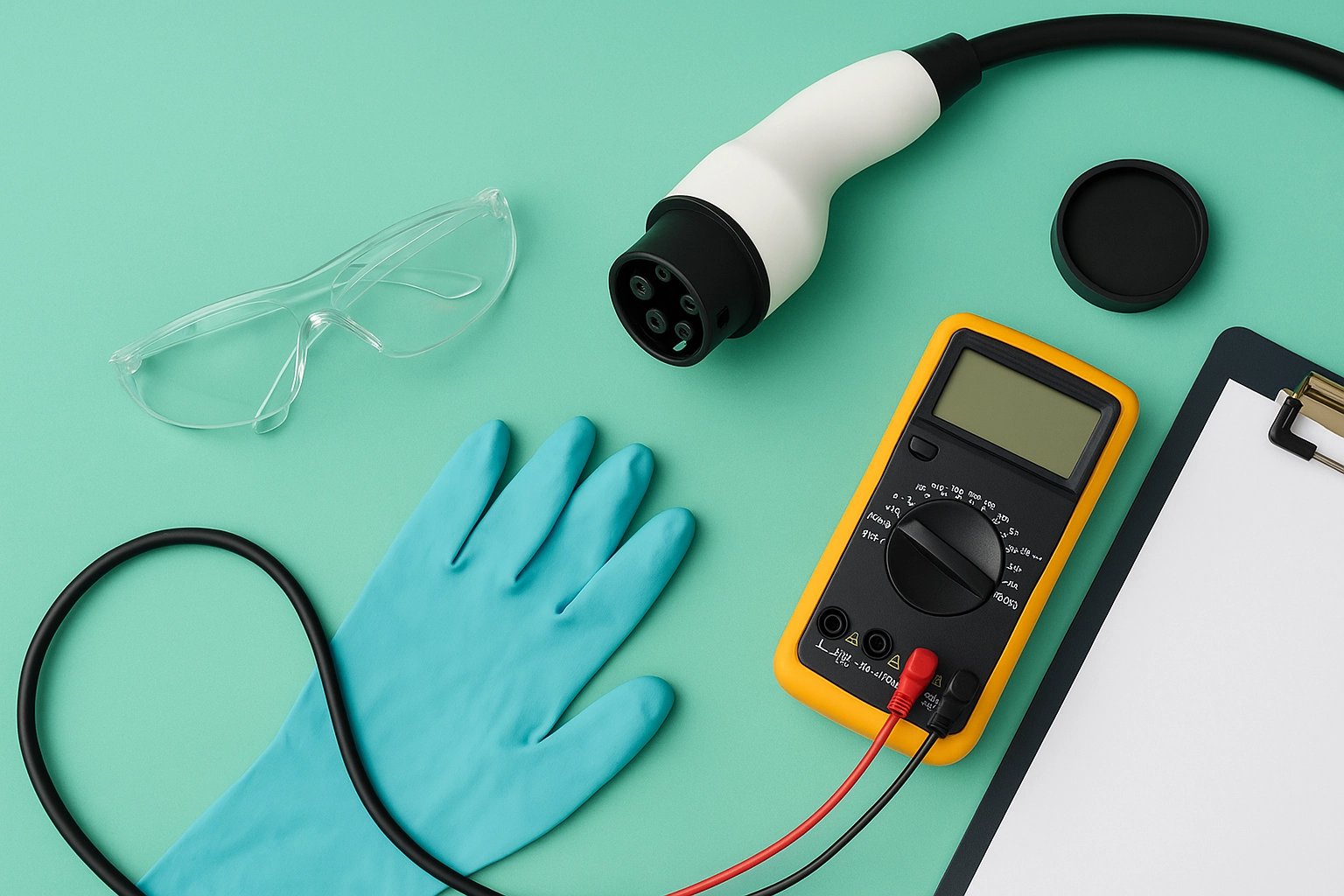CSA C22 2 No 107 1 EV Charging Power Converter Test
The CSA C22.2 NO.107.1 standard is a crucial document that outlines the performance, safety, and efficiency requirements for electric vehicle (EV) charging power converters. This test ensures that charging equipment meets stringent industry standards to guarantee safe and reliable operation.
In the automotive sector, where electrification is rapidly transforming the industry, compliance with such standards is paramount. The CSA C22 2 No 107 1 standard focuses on several key areas:
- Electrical safety and protection against overcurrents.
- Efficiency of the power converter in various operating conditions.
- Compatibility with different EV models, ensuring seamless charging experiences for users.
- Sustainability criteria to minimize environmental impact.
The test involves rigorous procedures designed to evaluate how well a charging unit adheres to these standards. This includes evaluating the power converter’s ability to handle peak currents without compromising safety or performance. The testing process is critical in ensuring that EV chargers are safe for use, especially given the high voltages and currents involved.
The standard requires manufacturers to provide detailed documentation about the components used, manufacturing processes, and quality control measures taken during production. This ensures transparency and traceability throughout the supply chain, which is essential for maintaining compliance with international standards like ISO 9001 or IEC 62368.
Compliance with CSA C22 2 No 107 1 not only protects consumers from potential hazards but also enhances brand reputation by demonstrating commitment to safety and quality. For R&D engineers, this means focusing on continuous improvement of charging technology while adhering strictly to these benchmarks.
In summary, the CSA C22 2 No 107 1 test is a vital step in ensuring that EV chargers meet rigorous safety and performance standards. It plays an integral role in fostering trust between manufacturers, regulatory bodies, and consumers alike.
| Applied Standards |
|---|
| CSA C22.2 NO.107.1 |
| IEC 62368-1 |
| ISO 9001:2015 |
Why It Matters
The importance of the CSA C22.2 NO. 107.1 test cannot be overstated, particularly in the context of electric vehicle charging infrastructure. The global shift towards renewable energy and sustainable transportation has led to increased demand for reliable and safe EV chargers.
Compliance with this standard ensures that all components of an EV charger—such as the power converter—are thoroughly tested under various conditions before being deployed in real-world scenarios. This includes testing at both normal operating levels and peak loads, simulating situations where a vehicle might need to draw high amounts of current quickly.
The test also evaluates the long-term durability and reliability of these components, which is critical given that an EV charger is expected to operate continuously over extended periods without failure. By adhering strictly to the requirements set forth by CSA C22 2 No 107 1, manufacturers can demonstrate their commitment to quality and safety, thereby building consumer confidence.
In addition, compliance with this standard helps ensure interoperability between different types of EV chargers and vehicles. This is particularly important as more models enter the market every year. Interoperability ensures that users do not face issues when switching between various makes/models of EVs or charging stations during their travels.
Moreover, by adopting these tests, automotive companies contribute to broader sustainability goals by reducing waste associated with non-compliant products and improving overall environmental impact through efficient energy use. This aligns well with growing corporate social responsibility initiatives within the industry.
Applied Standards
| Standard |
|---|
| CSA C22.2 NO.107.1 |
| IEC 62368-1 |
| ISO 9001:2015 |
The application of these standards ensures that the testing process adheres to internationally recognized best practices, providing consistent and reliable results across different regions.
Why Choose This Test
- Rigorous Evaluation: The test evaluates the power converter's ability to handle peak currents safely and efficiently.
- Compliance Assurance: Ensures that all components meet strict safety and performance criteria set by industry standards.
- Interoperability: Guarantees compatibility with various EV models, enhancing user experience.
- Durability Testing: Simulates real-world usage conditions to assess long-term reliability.
By choosing this test, manufacturers can ensure that their products not only meet regulatory requirements but also perform optimally under diverse operating conditions. This is especially important in the rapidly evolving field of electric vehicle technology.





